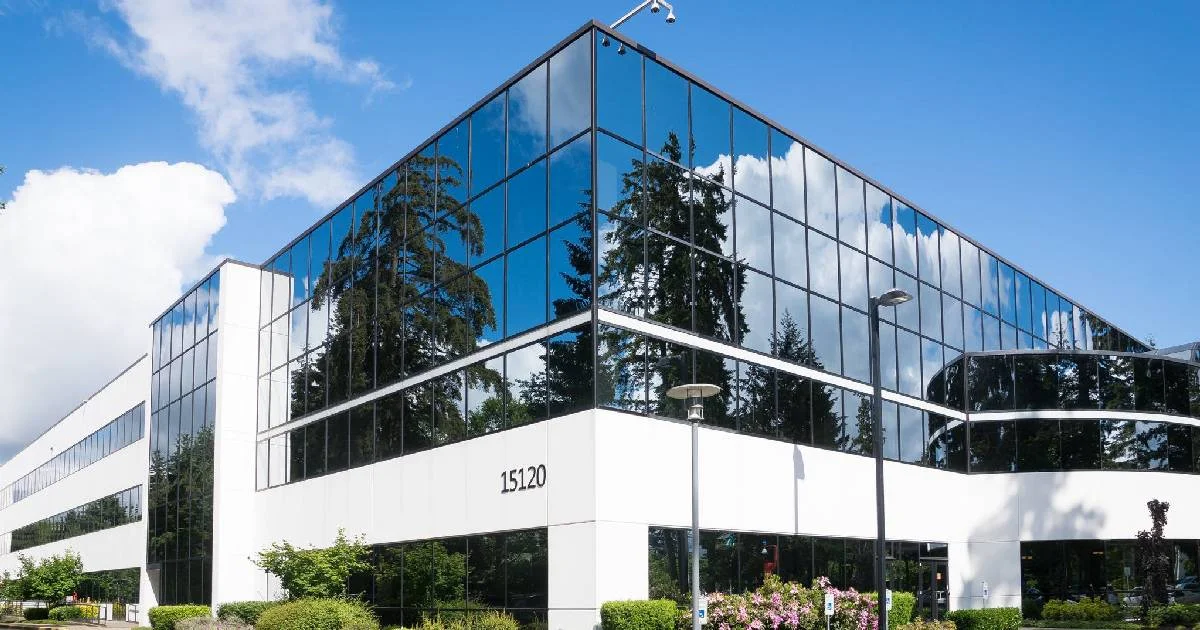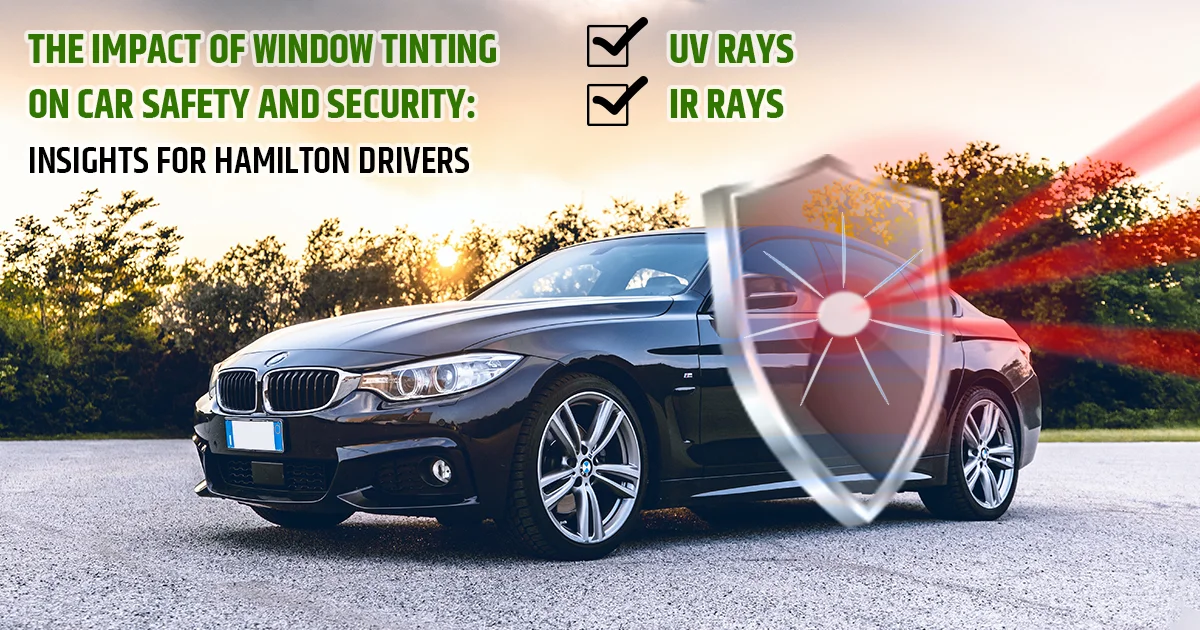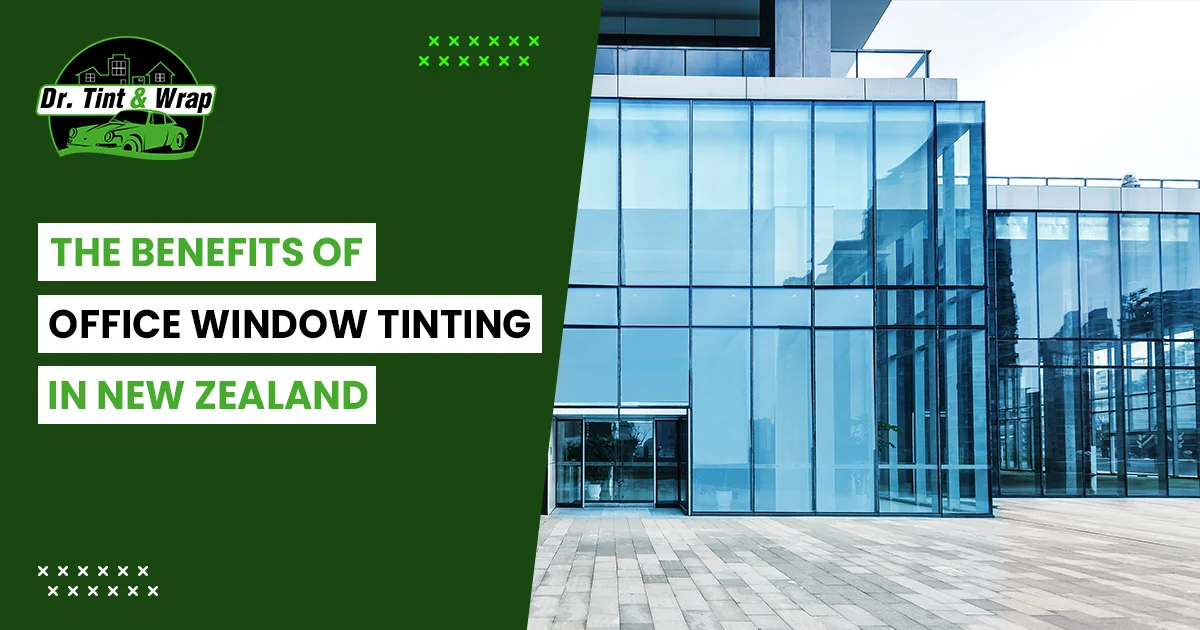
Why Tint Your Office Windows In Rotorua ?
12 Feb 2024, By AdminIntroduction
The design and functionality of office spaces play a crucial role in fostering a productive and comfortable work environment. In recent years, businesses have been exploring various strategies to optimize their office spaces, and one such innovative solution gaining popularity is office window tinting. While often associated with cars, window tinting has proven to be a valuable investment for commercial spaces as well. In this blog post, we'll delve into the reasons why more businesses are opting for office window tinting to enhance their workspaces.
- Energy Efficiency: One of the primary reasons companies choose office window tinting is its ability to improve energy efficiency. Tinted windows act as a barrier against the sun's heat, reducing the need for excessive air conditioning during hot summer months. This not only leads to lower energy bills but also contributes to a more sustainable and environmentally friendly workspace.
- Glare Reduction: Glare from the sun or reflective surfaces can be a major distraction for employees working on computers or engaging in tasks that require concentration. Office window tinting helps minimize glare, creating a more comfortable and visually conducive environment for work. Employees can focus better on their tasks without the discomfort caused by excessive brightness.
- UV Protection: Prolonged exposure to ultraviolet (UV) rays can be harmful to both employees and office furnishings. Office window tinting provides an effective shield against UV rays, reducing the risk of skin damage and preventing the fading of furniture, carpets, and other interior elements. This not only enhances the longevity of office assets but also contributes to the well-being of the workforce.
- Privacy Enhancement: Privacy is a critical consideration in office design. Tinted windows offer a level of privacy by obstructing the view from the outside without compromising natural light. This is especially beneficial for offices located in high-traffic areas or buildings with close proximity to other businesses. Employees can enjoy an open and bright workspace without sacrificing confidentiality.
- Aesthetic Appeal: Window tinting is available in various shades and styles, allowing businesses to customize the appearance of their office spaces. The sleek and modern look of tinted windows can contribute to the overall aesthetic appeal of the workplace, creating a professional and polished image for clients and visitors.
- Employee Comfort and Productivity: Comfortable employees are generally more productive. By regulating temperature, reducing glare, and providing a visually pleasing environment, office window tinting contributes to the overall comfort of the workspace. This, in turn, can positively impact employee morale and productivity.
How does office window tinting contribute to energy efficiency?
By blocking a portion of the sun's rays, office window tinting helps maintain a more consistent indoor temperature. This reduces the need for excessive use of heating and cooling systems, resulting in lower energy consumption and cost savings for the business.
Is office window tinting suitable for all types of windows?
Yes, office window tinting can be applied to various types of windows, including single-pane and double-pane glass. It is essential to choose the appropriate tinting film based on the specific needs and characteristics of the windows.
Can window tinting impact the view from inside the office?
Quality window tinting is designed to maintain the clarity of the view from inside the office while reducing glare and blocking harmful UV rays. Businesses can choose from a variety of tinting options, including those with minimal impact on visible light transmission.
How does office window tinting contribute to energy efficiency?
A: By blocking a portion of the sun's rays, office window tinting helps maintain a more consistent indoor temperature. This reduces the need for excessive use of heating and cooling systems, resulting in lower energy consumption and cost savings for the business.
Conclusion
Investing in office window tinting is a strategic decision that goes beyond simple aesthetics. It addresses key factors such as glare reduction, temperature regulation, UV protection, privacy, and energy efficiency. By creating a more comfortable and productive work environment, businesses can enhance the well-being of their employees and contribute to long-term cost savings. As the trend towards optimizing office spaces continues, office window tinting emerges as a practical and multifaceted solution for modern workplaces.

The Impact of Window Tinting on Car Safety and Security: Insights for Hamilton Drivers
12 Feb 2024, By AdminWindow tinting has become a popular choice among car owners in Hamilton and for good reason. Beyond its aesthetic appeal, window tinting offers several benefits, including enhanced privacy, protection from harmful UV rays, and improved temperature control inside the vehicle. However, one aspect that is often overlooked is the impact of window tinting on car safety and security. In this blog post, we will delve into the various ways in which window tinting can contribute to a safer and more secure driving experience for Hamilton drivers.
1. Reduced Glare for Enhanced Visibility: Driving in Hamilton, like any other city, can pose challenges with regard to glare from the sun and headlights. Window tinting helps to mitigate this issue by reducing the amount of light that enters the vehicle. By minimizing glare, window tinting improves visibility and enables drivers to have a clear view of the road, reducing the risk of accidents caused by impaired vision.
2. Protection from Shattered Glass: In the unfortunate event of an accident, the window film applied during tinting can act as a protective barrier. It holds the shattered glass together, preventing it from scattering all over the vehicle's interior. This not only minimizes the risk of injuries from flying glass shards but also makes it harder for potential intruders to gain access to the car during an attempted break-in. Window tinting thus adds an extra layer of security to your vehicle.
3. Enhanced Privacy and Theft Deterrence Privacy: is a significant concern for many drivers, and window tinting provides an effective solution. It limits the visibility of the vehicle, preventing prying eyes from scrutinizing your valuables and personal belongings. With tinted windows, you can go about your daily activities in Hamilton with greater peace of mind, knowing that your privacy is protected. Moreover, window tinting acts as a deterrent against theft. By concealing the contents of your car, it reduces the likelihood of opportunistic thieves targeting your vehicle. Criminals are less likely to break into a car when they are unsure about what lies inside, making window tinting a valuable investment for your vehicle's security.
4. Temperature Control and UV Ray Protection Hamilton: Experiences varying weather conditions throughout the year, and car window tinting in Hamilton can help regulate the temperature inside your car. The film used in window tinting acts as a heat barrier, reducing the amount of solar heat that enters the vehicle. This can be especially beneficial during hot summer months, keeping the interior cooler and reducing the reliance on air conditioning. Additionally, window tinting blocks a significant amount of harmful UV rays from entering the car. Prolonged exposure to UV rays can cause skin damage and increase the risk of skin cancer Tinted windows offer an added layer of protection by blocking up to 99% of these harmful rays, ensuring the well-being of both you and your passengers.
In conclusion, car window tinting in Hamilton goes beyond enhancing the appearance of your vehicle, it also has a substantial impact on car safety and security. By reducing glare, protecting against shattered glass, providing privacy, and regulating temperature, tinted windows offer numerous advantages for Hamilton drivers. Moreover, the UV ray protection they provide can contribute to your long-term health and well-being. Consider window tinting as an investment in both your vehicle's safety and your driving experience in Hamilton. If you're a Hamilton driver looking to improve the safety and security of your car, Dr. Tint Hamilton should be your first choice. With our expertise, precision installation, and high-quality tint films, we ensure optimal heat rejection, UV protection, and privacy, making them the top choice for car owners in Hamilton and around

The Benefits of Office Window Tinting in New Zealand
12 Feb 2024, By AdminWhen it comes to enhancing the comfort and functionality of your home, window tinting is a solution that often goes unnoticed. In New Zealand, where climate variations are common, the benefits of home window tinting extend far beyond aesthetic appeal. In this article, we'll explore how home window tinting can significantly reduce your energy bills and lead to long-term cost savings, making it a smart investment for homeowners across the country.
Understanding the Energy Efficiency of Window Tinting
New Zealand experiences a range of weather conditions throughout the year, from scorching summers to chilly winters. During these extremes, the energy used to regulate indoor temperatures can skyrocket. This is where window tinting comes into play.
1. Heat Reduction: One of the primary benefits of window tinting is its ability to reduce heat gain. Tinted windows block a significant portion of the sun's heat and harmful UV rays from entering your home. As a result, your indoor spaces remain cooler during hot summer months, reducing the need for air conditioning.
2. Insulation: Window tinting also provides insulation benefits, helping to maintain a consistent indoor temperature. In winter, it helps to keep warmth inside, reducing the need for excessive heating.
Cost Savings Through Window Tinting
Now, let's delve into how these energy-efficient qualities translate into tangible cost savings for homeowners in New Zealand.
1. Lower Energy Bills: By reducing heat gain during the summer and heat loss during the winter, window tinting significantly reduces your reliance on heating and cooling systems. As a result, you'll see a noticeable drop in your energy bills year-round.
2. Extended Appliance Lifespan: Reduced reliance on air conditioners and heaters not only saves you money on electricity but also extends the lifespan of these appliances. They don't have to work as hard, which means fewer repairs and replacements.
3. Furniture and Flooring Preservation: Window tinting also blocks harmful UV rays that can cause fading and damage to your furniture, flooring, and décor. This means you won't have to spend as much on replacing or refurbishing these items.
4. Enhanced Home Value: A home with energy-efficient features like window tinting can command a higher resale value in the New
Zealand real estate market. Potential buyers are often willing to pay more for a home with reduced energy costs.
In New Zealand, where energy efficiency and sustainability are becoming increasingly important, home window tinting stands out as a practical investment for homeowners. By reducing energy bills, extending the lifespan of appliances, preserving your interior, and enhancing your home's value, window tinting offers numerous long-term cost-saving benefits.
So, if you're looking to make your New Zealand home more energy-efficient and cost-effective, consider investing in professional window tinting services. Not only will you enjoy a more comfortable living space, but you'll also contribute to a greener and more sustainable future while saving money in the process.

Understanding the Legal Aspects of Car Window Tinting in Tauranga
12 Feb 2024, By AdminCar window tinting has become a popular choice for vehicle owners in Tauranga, offering various benefits such as enhanced privacy, protection against harmful UV rays, and improved aesthetics. However, it is important to understand the legal aspects surrounding car window tinting to ensure compliance with local regulations. In this blog post, we will delve into the legal guidelines for car window tinting in Tauranga and provide you with valuable information to make informed decisions.
1. Familiarize Yourself with the Regulations
Before diving into car window tinting, it's crucial to be aware of the specific legal requirements in Tauranga. Each region may have its own set of regulations, so it's important to research and understand the guidelines specific to this area. Familiarize yourself with the allowable levels of tint darkness and reflectiveness to ensure compliance.
2. Light Transmission Laws
One of the key factors in car window tinting regulations is light transmission, often measured as a percentage. The lower the percentage, the darker the tint. In Tauranga, the allowable light transmission levels for car window tints may vary for different windows. For instance, the front windshield usually requires a higher light transmission compared to the rear windows. Understanding these variations is essential to avoid potential legal issues.
3. Visible Light Reflectance Limits
Apart from light transmission, Tauranga's regulations also impose limits on the amount of visible light reflectance that car window tints can have. Reflective tints can significantly impact the visibility of other drivers, potentially causing hazards on the road. Therefore, it's crucial to adhere to the specified limits to maintain road safety.
4. Certification and Compliance
When getting your car windows tinted in Tauranga, it's essential to choose a reputable service provider that uses tint films that comply with local regulations. Certified professionals will ensure that the tinting job meets the legal requirements, giving you peace of mind and minimizing the risk of penalties or fines.
5. Warranties and Documentation
To demonstrate compliance with the legal aspects of car window tinting, it's essential to keep the necessary documentation. This includes warranties for the tint films used and certificates of compliance provided by the service provider. These documents can serve as proof of compliance in case of inspections or any legal inquiries.
6. Regular Inspections and Maintenance
Even if your car window tints comply with the regulations at the installation time, it's important to maintain compliance in the long run. Regular inspections can help identify any issues such as peeling, bubbling, or fading of the tint film. If you notice any problems, promptly address them by consulting a professional to ensure that your car remains within legal limits.
Dr. Tint & Wrap excels in providing the finest car window tinting services in Tauranga, ensuring strict compliance with government laws for car window tinting in the area. Their expertise and attention to detail make them the top choice for anyone seeking professional car window tinting in Tauranga. Understanding the legal aspects of car window tinting in Tauranga is crucial to ensure compliance with local regulations and avoid potential penalties. By familiarizing yourself with the guidelines regarding light transmission, visible light reflectance, certification, and documentation, you can enjoy the benefits of window tinting while staying on the right side of the law. Remember to choose a reputable service provider, maintain proper documentation, and conduct regular inspections to ensure your car's window tinting remains in compliance with the law.
